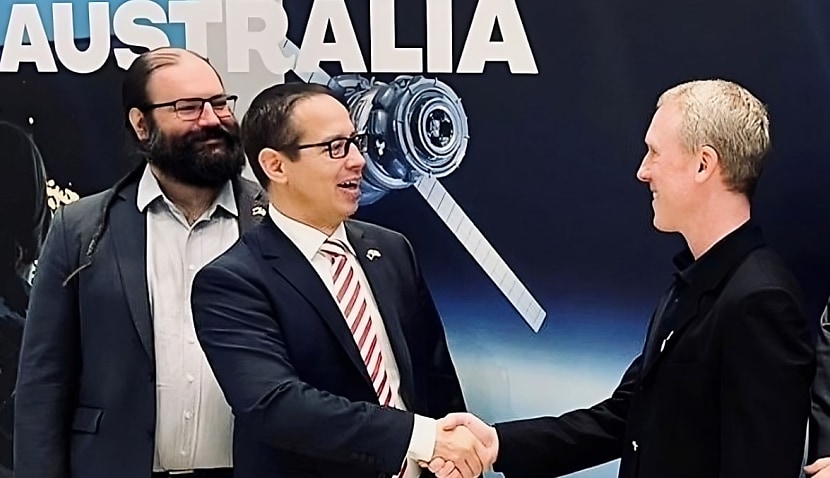
The pair hope the collaboration will result in an upgraded version of the “Neumann Drive” for use in the international smallsat market.
Gilmour Space Technologies is one of the most high-profile businesses in Australia’s space sector and is targeting the first test launch of its Eris rocket later this year.
Neumann, meanwhile, has won plaudits for its unique propulsion system that is simpler than traditional chemical methods, allowing for spacecraft to be potentially refuelled and deorbited easier. This includes harnessing space debris for fuel.
On Thursday, the pair said they believe the partnership will yield product compatibility for satellites up to 500 kilograms and superior mobility in space.
“As a member of the Australian Space Manufacturing Network (ASMN), we are very pleased to participate in a project that sees the private and public sectors come together to advance the development and commercialisation of leading sovereign space technologies with a global market,” said Neumann Space chief executive officer Herve Astier.
“Access to Gilmour Space Technologies’ satellite interfaces and their talented team are both integral to supporting the successful product design, integration, and testing of a more powerful Neumann Drive. This is an important milestone for Neumann Space in the commercialisation of our technology and the expansion of our business into new markets.”
Gilmour Space will provide satellite analogues for testing at the ASMN, which will allow Neumann Space to scale up their system and create a new Australian capability for manoeuvring smallsats on-orbit.
“Neumann Space is an Australian company that’s making inroads into the global small satellite market with their patented technology, and we’re excited to be working with them in the ASMN,” Gilmour CEO Adam Gilmour said.
“It’s commercial-focused collaborations like this that will help to boost Australia’s sovereign space capability.”
It comes after Space Connect reported how the Neumann Drive blasted off from Vandenberg Space Force Base in California at approximately 7:05am on 13 June ACST on board a SpaceX Falcon 9 rocket (Transporter 8).
The Adelaide-based company said the launch is the first of its in-orbit demonstrations planned for 2023 and 2024, which it hopes will provide details about the operatonal performance of the product.
It was the latest in a string of announcements from the company. In April, Space Connect reported how Neumann would collaborate with a US Space Force-funded project, which saw Colorado-based CisLunar acquire the Neumann Drive.
Receive the latest developments and updates on Australia’s space industry direct to your inbox. Subscribe today to Space Connect here.









